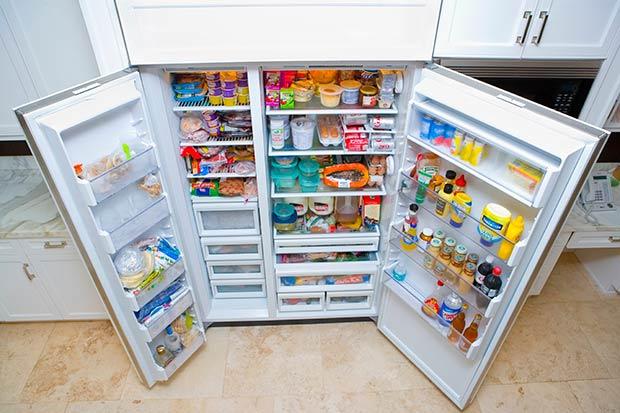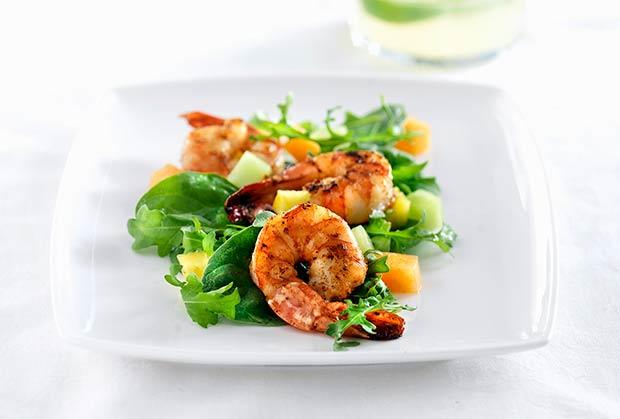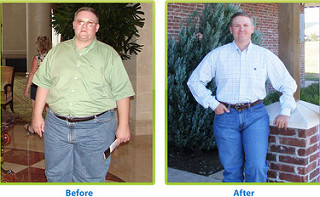Her habit had consequences, says Littleton, who started numbing herself with food after the death of her father at a young age. Her need for sweets helped drive her weight to 250 pounds; her back and knees hurt, and she had chest pains. "People tell me that at least I've never had an addiction like alcohol or drugs—something serious," she says. "But I tell them my addiction was serious."
Addiction—To Food?
It seems that everywhere you turn—dinner parties, your best friend's kitchen, bookstores, even talk shows—someone is confessing to having a food addiction. For years, experts scoffed at the notion that you could be hooked on chocolate or chips. Some still do. And while people like Littleton have long been accused of lacking willpower, research at the US Department of Energy's Brookhaven National Laboratory in New York suggests they may be missing something else instead: adequate brain receptors for dopamine, a chemical that is part of the brain's motivation and reward system. "Dopamine is the chemical that makes you say aah," says Gene-Jack Wang, MD, clinical head of positron emission tomography imaging at Brookhaven and leader of a series of studies investigating the brain chemistry of chronic overeaters. "It gets us to go over and grab something that will make us feel good."
It's possible that drug use or compulsive overeating actually reduces the number of dopamine receptors. But it's also possible that some people are born with fewer—and if that's the case, say researchers, it could explain a lot. If overeaters or drug addicts are short on receptors for the aah chemical, they might not respond as readily to social interaction, art, sex, and other pleasures that ought to make them feel good. And that could be the reason they're driven to consume things that prompt dopamine's release—like illicit drugs (the most potent activator) or foods high in fat, sugar, and possibly salt. (Try this 12-day liver detox from Heal Your Whole Body.)
"If you have someone who is not responsive to natural reinforcers, that person may be more vulnerable to taking drugs," says Nora D. Volkow, MD, director of the National Institute on Drug Abuse, whose 2001 study pioneered some of the food-addiction research. "If you get stimulated only by food, guess what happens? You can easily fall into patterns of compulsive eating."
 Photograph by glow decor/getty images
Photograph by glow decor/getty images
Is It Nature...Or Nurture?
Addiction and obesity both run in families, and experts believe that genetic components account for at least some of a person's vulnerability. But animal research also suggests that the environment—mainly, how often you're exposed to an addictive substance—can shift brain neurochemistry, increasing the likelihood of food addiction. One hint that environment plays a role comes from studies in which animals were repeatedly given cocaine: Frequent use actually decreased the number of dopamine receptors, says Wang.
If that's the case, we live in an environment perfectly designed to nurture food addiction. For decades, food-industry scientists have been working hard to figure out how better to hook people, claims David L. Katz, MD, MPH, director of the Yale-Griffin Prevention Research Center in Derby, CT, and author of The Flavor Point Diet.
Manufacturers now excel at hitting the sweet spot—making us crave more and more of a food. "In a supermarket recently, I actually found a pasta sauce that, serving for serving, contained more sugar than a chocolate fudge sauce, though the sweetness was hidden because the pasta sauce was so salty," Katz says. "The question is, why would anybody pour a packet of sugar over their pasta? And the answer is that if you get used to that much sugar, another pasta sauce will taste too bland. The food industry wants us to need more and more of the substance to feel satisfied, so we'll go out and buy more and more of it." (Check out these other sneaky sources of sugar.)
Whether you look outside or inside yourself for the determination to stop your destructive behavior, researchers agree that it's important to recognize that you can change. High-fat, high-sugar foods may trigger some of the same brain effects as drugs like cocaine or heroin, but their impact isn't as powerful, say researchers, who point out that addicted rats, for instance, will choose cocaine over food.
Do YOU Have A Food Addiction?
You might have a food addiction if any of these descriptions fit: You continue to overeat even though you know it's harming your health and possibly your family and social life; you hide out and eat alone; you feel compelled to finish all of the food in your line of sight (or in your house); you eat to the point of pain or discomfort.
Also consider the following four questions, suggests Mark Gold, MD, chief of addiction medicine at the University of Florida College of Medicine. They're an adaptation of the CAGE questionnaire, a tool used to diagnose alcoholism. "You really need to answer yes to only two items to indicate that you may have a problem," he says.
1. Have you ever felt the need to Cut down on your eating? Many people overeat on occasion; the difference is that you feel that if you don't ration yourself, you will completely lose control.
2. Have you ever been Annoyed by criticism of your eating? If you get upset when anyone brings up what or how much you consume, it may mean that you are too attached to eating.
3. Do you feel Guilty about your eating? The guilt builds up, because at every meal you say you're going to control yourself—and you fail.
4. Have you ever needed an Eye-opener? You may wake up in the morning and feel compelled to consume. "We have patients who get up in the middle of the night and eat," Gold says. "They say, 'I finished a cake—I don't know how I did it.' "
How To Take Back Control
While it may feel at times like a runaway train, how you eat isn't out of your control, says Susan McQuillan, MS, RD, author of Breaking the Bonds of Food Addiction. Having a plan of action can help. With that in mind, here are steps you can take to get back on track.
1. Don't go cold turkey.
Although treatment for life-threatening drug or alcohol addiction generally requires abstinence, an all-or-nothing approach is impossible for food addicts—everyone has to eat. Besides, some weight loss experts believe that such rigid thinking can make you crave the offending food more than ever. Says Edward Abramson, PhD, professor emeritus of psychology at California State University, Chico, and author of the book Body Intelligence, "If someone told me that I could never eat another doughnut as long as I live, I would become so preoccupied with doughnuts that I'd probably gobble down a dozen by the end of the day. If I know I can have another doughnut sooner or later, I won't feel so desperate. I can eat just one."
2. Control your home environment.
Just as someone with an alcohol problem shouldn't buy a magnum of champagne, you shouldn't overstock your kitchen, says Gold. "You have to assume that every food or drink you buy will end up in your mouth. You'll see a TV commercial or some other trigger, and that food will end up in your mouth." Exercise purchase and portion control, Gold advises.
3. Temper temptation.
Sometimes it's not just a food that sets you off but also the place in which you eat it—and that's why putting yourself in a situation where you used to eat excessively can be a recipe for trouble. Ex-drug addicts face this problem all the time, reports Marcia Levin Pelchat, PhD, a research scientist at Monell Chemical Senses Center in Philadelphia. "Going back to the old neighborhood often triggers a strong craving," she says.
Similarly, the sight of the bakery where you used to buy brownies might melt your resolve. So shake up your routine. If tortilla chips are your weakness, don't go to Mexican restaurants. If you always have ice cream while watching TV, read a book instead (or knit to keep your hands busy).
4. Retrain your brain.
 Photograph by gene koehler/getty images
Photograph by gene koehler/getty images
In order to be satisfied with two cookies instead of an entire bag, you need to change the way your brain sees food on the plate, says Gold. First, switch to smaller plates and bowls to automatically reduce portion sizes. "This can make people very distraught because the brain looks at the smaller portions and decides they're not enough," says Gold. "But over time, the brain gets used to it."
Next, leave more space on the plate by again reducing the amount of food you serve yourself. Each step may take several weeks to feel comfortable, but stick with it and consuming smaller portions will become second nature.
5. Adjust your tastebuds.
One of the best ways to gain control over your eating is to restore your sensitivity to flavors, says Katz. You can do it without depriving yourself: If sugar is your downfall, keep sugar cookies in your diet, but when picking prepared foods that aren't supposed to be sweet—such as pasta sauce, bread, and chips—look for ones without added sweeteners. Check ingredient labels for all the names that sugar goes by, including fructose, dextrose, and corn syrup.
"By removing all that superfluous sugar from your diet, you'll soon reset the sensitivity of your tastebuds," explains Katz, who says that the same technique can be used to reduce your desire for salt or fat. Be forewarned: You'll have to maintain vigilance. "Tastebuds are very adaptive little fellows," Katz says. "If you let extra sugar and fat into your diet, you could be lured back into your old patterns."
6. Exercise regularly.
 Photograph by Tom Merton/Getty Images
Photograph by Tom Merton/Getty Images
Milky Ways and Big Macs aren't the only things that satisfy the pleasure centers of your brain—so does exercise. Research shows it raises dopamine levels and increases the number of dopamine receptors in the brain.
Making a commitment to work out helped Littleton kick her chocolate habit. As a result of a vigorous exercise routine and a more sensible diet, she's lost 114 pounds in the past 3 years. "The feeling I get after I exercise is nothing like I'd get after eating chocolate," she says. "It's much better, and it doesn't come with guilt."
7. Learn to eat only when you're hungry.
One classic tool that weight loss experts use to teach people how to better manage their appetite is the hunger scale. The scale ranges from 0 to 10, with 0 being ravenously hungry and 10 being overstuffed. "A food addict's goal is to stay away from either of these extremes," says McQuillan.
Eat when you begin to feel hungry (2 or 3 on the scale) and stop when you feel comfortably satisfied (5 or 6). Though it's obvious that you don't want to eat to an overstuffed 10, using the scale to gauge when you should start munching is important, too: If you wait until you're at 0, you may eat all the way up to 10.
8. Deal with your emotions.
 Photograph by universal images group/getty images
Photograph by universal images group/getty images
It's crucial to stop using food to cope with your feelings, says McQuillan. This can mean getting better at tolerating sensations of sadness, anger, or boredom, rather than rushing to soothe them with food. Sometimes it means asking what you need to make your life better. "I failed when I tried to comfort myself with food after the death of my dad and after two miscarriages," says Littleton. "I had to turn around to face it head-on. Now I'm in control of my decisions."
This article originally ran in Prevention June 2006.




